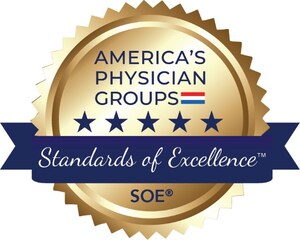Dr. Darshak Sanghavi, Merkin Fellow for Payment Reform and Clinical Leadership at the Engelberg Center for Healthcare Reform at the Brookings Institution in Washington, DC
THE RICHARD MERKIN SCHOLAR LEEDS SECOND "MEDTALK" SERIES AT BROOKINGS
Discussion explores reinventing patient centered cancer care as it relates to payment and delivery reform
MARINA DEL REY, Calif., July 21, 2014 /PRNewswire/ -- The Richard Merkin Initiative on Payment Reform and Clinical Leadership at the Engelberg Center for Healthcare Reform at the Brookings Institution in Washington, DC, held the second "MEDTalk," series, Reinventing Patient-Centered Cancer Care on July 9, 2014. http://www.brookings.edu/events/2014/07/09-medtalk-oncology-cancer-patient-centered-care
The Merkin Series on Innovation in Care Delivery merges medicine, education and healthcare delivery reform and is designed to support clinicians and policy makers as they look to improve the quality and cost of healthcare.
Dr. Darshak Sanghavi, Merkin Fellow for Payment Reform and Clinical Leadership, led the discussion that focused on the challenges of delivering oncology care, including improving patient experiences and better care coordination that is more cost effective. Andrene Taylor, cancer survivor and Executive Director of ZuriWorks, talked about "A Day in the Life"-her own firsthand patient experience, followed by Richard Schilsky, Chief Medical Officer, the American Society of Clinical Oncology, who shared information on the future of new drugs, genetic testing and personalized medicine. William Nelson, Director of the Sidney Kimmel Comprehensive Cancer Center at Johns Hopkins Medical Center, challenged the discussion group to consider the delivery of cancer care in a triple aim world; Patrick Conway, Deputy Administrator of Innovation and Quality, Chief Medical Officer CMS, shared what they are learning about new oncology payment models; Brian Kiss, Senior Medical Director, Network Programs, Florida Blue, discussed supporting care while reducing costs; Barbara McAneny, CEO, New Mexico Canter Center, shared the New Mexico experience of aligning clinical redesigns and payment reform and Laura Stevens, Program Director, Innovative Oncology Business Solutions, discussed sustainable improvement strategies in patient centered cancer care and financial models that encourage innovations in oncology. Dr. Darshak Sanghavi summarized the event with participants, emphasizing lessons learned and the path forward.
The Richard Merkin Initiative on Payment Reform and Clinical Leadership was established in 2011 by The Merkin Foundation and Dr. Richard Merkin, President and CEO of Heritage Provider Network. The initiative supports two full time scholars at Brookings to study ways to make critical policy changes replacing the current fee for service system, transitioning to new payment models and increasing leadership skills of clinicians.
"The challenges of delivering high quality oncology care while providing positive patient experiences is important for us to continue to explore," said Dr. Merkin. "Finding innovative solutions, reinventing patient centered cancer care while navigating new payment and delivery reform opportunities remains integral to overall healthcare reform."
"Oncology care consumes 25 percent of our health care costs, so identifying clinician-led opportunities to enhance care and improve value are important national priorities," said Dr. Sanghavi. "In this second installment of our Merkin Series on Delivery and Payment Innovation, we explored the complex contours of this issue in a highly engaging format—reaching hundreds and hundreds of policymakers, clinicians, payers, and patients. We're also excited to be releasing our comprehensive case study on oncology care and payment reform, adding to our prior peer reviewed publications from the Merkin Series."
"At the Johns Hopkins Kimmel Cancer Center, we have reconfigured our initial interactions with new cancer patients by creating multi-disciplinary clinics to avoid unnecessary delays in getting definitive treatment started that historically resulted from the need for repeated referrals to different specialists. In doing so, we not only reduced patient anxiety and increased patient satisfaction, we also unmasked significant and pervasive shortcomings in cancer diagnosis and staging, changing the diagnosis or stage in as many as 25% or so of cases. Remarkably, in our pancreatic cancer multidisciplinary clinic, some 4% of patients seen were found not to have pancreatic cancer. The more accurate diagnosis and staging could be ascribed to the highly specialized and very experienced pathologists, radiologists, and others at academic centers like the Kimmel Cancer Center. We are currently exploring new cancer care models in which this relatively scarce but vital diagnosis and treatment planning expertise can be made more broadly available, regardless of where cancer treatment is ultimately delivered."
ABOUT HPN: (www.heritageprovidernetwork.com)
Heritage Provider Network, Inc. (HPN) is on the cutting edge of the accountable care model of healthcare delivery: coordinated, patient-doctor centric, integrated health care systems that represent the future of health care in the United States. HPN and its affiliates operate in California, New York and Arizona providing high quality, cost effective healthcare to over 700,000 individuals and are dedicated to quality, affordable health care, and putting patients' wellness first.
Photo - http://photos.prnewswire.com/prnh/20140718/128705
Logo - http://photos.prnewswire.com/prnh/20120418/LA89605LOGO-a
SOURCE Heritage Provider Network, Inc.
WANT YOUR COMPANY'S NEWS FEATURED ON PRNEWSWIRE.COM?
Newsrooms &
Influencers
Digital Media
Outlets
Journalists
Opted In





Share this article